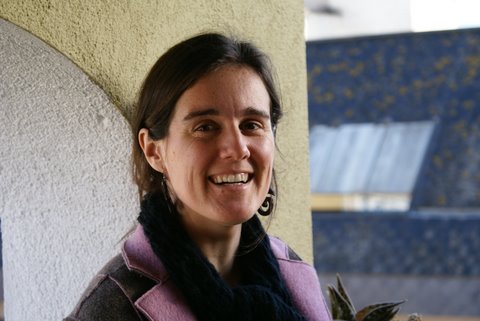Research Seminar: “Loneliness, social support and participation in older people from a health perspective” by Laura Coll-Planas

ONLINE SEMINAR
THURSDAY 8TH JULY
12:00h – 14:00h CEST
Do you want to attend?
Research Seminar conducted by Dr. Laura Coll-Planas (Foundation for Health and Ageing, Universitat Autònoma de Barcelona)
Abstract
Ageing is a global success but poses specific challenges, such as an increased risk of loneliness, understood as longing for social relationships. In Spain, 14% of people over 65 feels lonely all or most of the time, being among the highest prevalence in the European Union. Loneliness is an established risk factor for poor health, while social support and social participation (embedded in the umbrella concept of social capital) are established protective factors for health. Their health effects are comparable with smoking (cessation) and physical (in)activity according to observational studies. However, experimental research in this area is weak. Therefore, in order to build an evidence base and to support the design, implementation, evaluation and synthesis of interventions in this area, we aimed to:
1. Conduct a systematic review of current evidence on interventions that promote social capital among older people to improve their health.
2. Design, implement and evaluate interventions in our context that promote social capital to alleviate loneliness among community-dwelling older people.
We conducted a systematic review of trials with interventions that promote social capital (or its components) among older people and assessed the impact on any health outcome or the use of health-related resources. Complementarily, we built a taxonomy to guide social capital interventions combining theoretical frameworks on social capital and health with current epidemiological evidence (i.e., the trials included in the systematic review). We designed, implemented and evaluated an intervention programme. 1) The programme “Camins: de la solitud a la participació” (“Pathways: from loneliness to participation”) promoted social support and participation among lonely older adults in the community. The complex intervention was conducted in three primary health care centres in Spain in a pre–post study with a two-year follow-up. Health and social care professionals conducted the group-based intervention and older people active in senior centres volunteered as gatekeepers. The intervention was evaluated with quantitative and qualitative methods.
In the systematic review, we examined 17,341 abstracts and included 36 trials. Trials were clinically and methodologically diverse. Interventions showed mixed effects on quality of life, well- being and self-perceived health and were generally ineffective on loneliness, mood and mortality. Trials of high quality showed favourable impacts on overall, mental, and physical health, mortality and use of health-related resources. Complementarily, we developed the SOCAI taxonomy that characterized social capital-based interventions according to health-related goals, social capital-related contents, processes and contexts. The intervention “Camins” proved to be feasible, 38 participants were in-cluded and 10 volunteers took part. After the intervention, loneliness significantly decreased while social participation and support significantly increased. Exactly 65.8% of the participants built social contacts within the group and 47.4% became engaged in new activities. After the two-year follow-up, social effects were maintained and depressive symptoms had decreased. Complementary, the qualitative evaluation revealed how the programme had effects on loneliness, social participation, social support, and health.
The systematic review is the first one that assesses the impact of clinical trials based on social capital on health outcomes. It highlights the lack of evidence, high clinical diversity between trials and the low quality, while suggesting the potential of social capital to impact health in older adults. Complementarily, the SOCAI taxonomy is the first one to systematize evidence to fill the gap between social capital theory and practice from a health perspective. The intervention “Camins” contributes a novel and culturally appropriate strategy for alleviating loneliness among older adults while prompting meaningful changes in their lives. The intervention design was enriched by theoretical frameworks and contributed towards creating conceptual models to guide further programmes.
This thesis contributes epidemiological and conceptual work to support introducing social capital as a protective health factor and loneliness as a risk factor for health into intervention strategies targeting older people. Furthermore, social capital should be especially considered from a salutogenic approach as source of health and well-being, and thus as a way of contributing to a more meaningful life in ageing. However, achieving the potential health benefits of social capital faces a major challenge: understanding and managing the complexity of effectively improving existing networks and successfully creating new ones while considering costs, adverse effects and its implications in health inequalities.
Laura Coll-Planas has a medicine degree by the University of Barcelona, and PhD in public health by the Universitat Autònoma de Barcelona. Her thesis was titled “Loneliness, social support and participation in elderly from a health perspective”. After seven years in Germany combining clinica practice and research in the field of geriatrics, she joined the Institut de l’Envelliment de la UAB, currently Fundació Salut i Envelliment UAB, where she has participated, coordinated and directed european and regional projects on ageing.
Her passion in research is complex interventions in and with elderly, from a bio-psychosocial perspective, combining cuantitative and cualitative methodologies. Currently, besides being one of the principal investigators of the Aequalis project , she is the scientific coordinator of the Sitless project, funded in the framework of the Horizon 2020 programme of the European Commission
